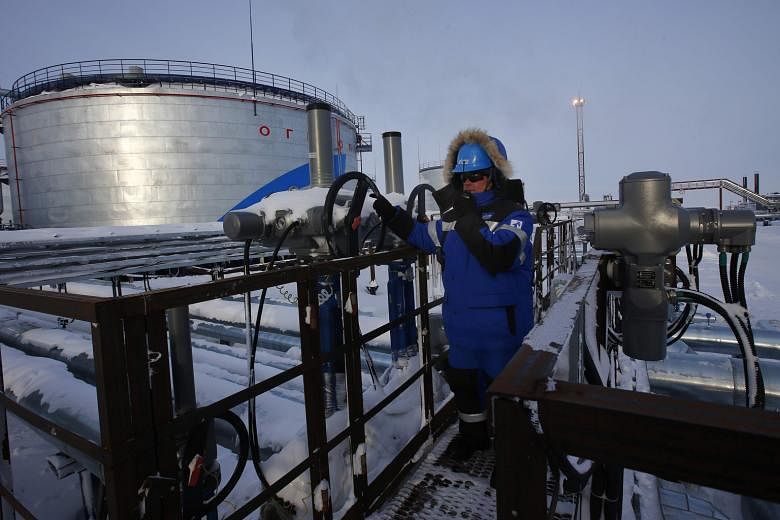VIENNA • Opec and other oil-producing countries are scaling back their crude output as promised under last month's historic agreement, putting global markets on track to rebalance after more than two years of oversupply.
Producers have cut oil supply by 1.5 million barrels a day, more than 80 per cent of their collective target, since the deal came into effect on Jan 1, Saudi Minister of Energy and Industry Khalid Al-Falih told reporters as ministers gathered to monitor compliance with the agreement.
"Compliance is great - it's been really fantastic," he said on Sunday. "Based on everything I know, I think it's been one of the best agreements we have had for a long time."
Saudi Arabia, Kuwait, Qatar, Algeria and Venezuela are meeting counterparts from non-Opec nations Russia and Oman to find out ways to verify that the 24 signatories to their Dec 10 accord are following through on their pledge to remove a combined 1.8 million barrels a day from the market for six months.
They intend to prove that the Organisation of Petroleum Exporting Countries (Opec) is serious about finally eliminating a global glut and dispel scepticism stemming from previous unfulfilled promises.
International oil prices rose to an 18-month high of more than US$58 a barrel after Opec and several non-members agreed to end two years of unfettered production and instead cut output.
Crude oil has since slipped about 5 per cent from that peak as traders await proof that the countries will follow through.
Saudi Arabia, the world's biggest oil exporter, has already exceeded its target with an output reduction of more than 500,000 barrels a day, Mr Al-Falih said, while Algeria and Kuwait have also cut to levels beyond their targets, according to ministers from those nations.
Other Opec members such as Iraq and Venezuela have not yet reached their quotas, but say they are more than halfway there.
Mr Al-Falih said he hopes all countries would reach full compliance with the deal next month.
He also forecast that brimming global stockpiles of crude oil would return to normal levels by the middle of the year. The agreement expires at the end of June.
Russia has reduced production by an average of 100,000 barrels a day, said Energy Minister Alexander Novak. "We are starting to see a shift in the momentum and the emergence of more bullish sentiment on the market," said Kuwaiti Oil Minister Essam Al-Marzouk.
"These are all encouraging signs that we are on the right track."
BLOOMBERG

